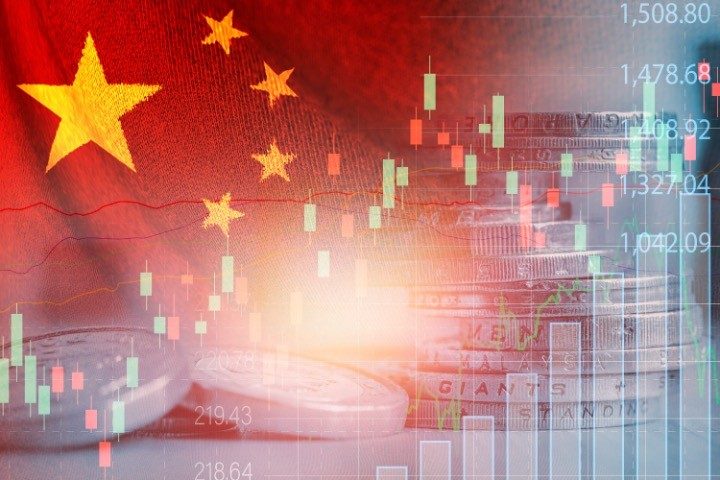
SINGAPORE — In the last two months of 2022, Chinese firms like Guangdong DP Co., Jinke Property Group, and Country Garden Services Holdings declared major stock sell-offs, according to a report by The Epoch Times.
These sell-offs come amid government efforts to repress illegal stock sales, one of various attempts of the Chinese Communist Party (CCP) to bring the economy back under state control and curb capital flight from China. Observers surmise that the aforementioned stock sales are part of a rising trend by China’s super-wealthy to cash out and leave the country. As China tries to retain capital via fines, regulations, and forced donations, Chinese companies become even more alienated and more driven to depart.
Based on a Reuters report, Guangdong DP Co., a key supplier of LED lighting products, revealed that its controlling shareholder would unload a 6-percent stake in the company. The firm was listed as a public company in 2019, but in the three years since then, its performance has taken a nosedive. In 2022, the gross profit margin of its main business fell suddenly to 8.95 percent, down from 21.51 percent in 2021.
Jinke Property Group declared that two shareholders, Jinke Holdings and Huang Hongyun, had decreased their holdings in the company by 89.5 million shares, equivalent to 1.68 percent of the total shared capital of the company.
An article by the South China Morning Post said that Yang Huiyan, China’s richest woman, planned to sell about 7 percent of her stake in Country Garden Services Holdings, cashing in HK$5.055 billion ($649 million).
Real-estate site Mingtiandi said that Yang’s sell-off signaled the third major sale of equity in Country Garden Services Holdings since late November. The report also claimed that 41-year-old billionaire Yang is reducing her stake in the company she chairs by nearly a sixth, to 36.12 percent from 43.15 percent at the moment. Country Garden saw its stock price fall by 16.99 percent following the declaration.
Analysts contend that such regulatory crackdowns on an array of companies in the commercial, property, and educational sectors mirror a key shift in government policy since former leader Deng Xiaoping labeled economic development the ultimate priority more than four decades ago.
The new Chinese model seems to regard common prosperity, as President Xi Jinping has termed it, as more crucial than unbridled economic growth.
Bankers and investors say the new model was ushered in when regulators attacked the listing of Jack Ma’s fintech Ant Group, publicly restricting Ma and penalizing the global funds that had paid up. Subsequently, developers, commodity speculators, crypto miners, other technological giants, and even tutoring firms have all had to endure aggressive regulations and rule changes.
“Chinese entrepreneurs and investors must understand that the age of reckless capital expansion is over,” said Alan Song, founder of private equity firm Harvest Capital, in 2021. “A new era that prioritizes fairness over efficiency has begun.”
“The specter of state intervention into controlling the private sector has created a crescendo of panic-selling,” analysts at investment bank Jefferies commented in a note. “The authorities are attempting to reduce social inequality while clamping down on excessive price rises that are undermining the cost of living.”
Xing Zhaopeng, a senior China strategist at ANZ, remarked that the series of measures launched around the Chinese Communist Party’s centenary reflects the political will to stress the Party’s origins. “These policies were announced to reflect the Party’s progressiveness” and appeal to the masses, Xing said. “They send a message that China is not a capitalist country, but embraces socialism.”
Indeed, the Chinese regime remains undying in its attempts to suppress illegal stock sales to prove its socialist roots.
Chinese state media Xinhua News said that at least 30 companies and 60 shareholders received regulatory fines for noncompliance in their sale of shareholdings this year.
For instance, in November alone, nine A-share listed companies published an apology announcement on behalf of shareholders and executives who breached the law. Most companies denounced the illegal sales as being due to “mismanagement.”
The Paper, a Chinese digital news platform, quoted a total of 23 listed companies and related parties being investigated by the Securities and Futures Commission in November, showing an average of one new company investigated daily, as the month had only 22 trading days. Most investigations entailed suspected breaches of information disclosure.
Billionaire brothers Li Xiaohua and Paul Xiaoming Lee, vice chairman and chairman of Yunnan Energy New Materials Co., Ltd., were put under house arrest pending investigation. Between August 2020 and June 2022, the Li family had slashed its holdings in Yunnan Energy by about 54 million shares, worth about $549 million.
Li Yanming, a U.S.-based China expert and commentator, told The Epoch Times earlier in December that China’s wealthy and prominent figures began speeding up their asset sales and leaving China before the CCP’s October Congress this year.
These wealthy Chinese want to leave China due to a range of reasons, such as harsh Covid-19 lockdowns, draconian regulatory crackdowns, a loss of confidence in the CCP, property confiscation by the CCP, tax investigations, and safety concerns due to increasing government surveillance.
That wealthy Chinese are leaving China for overseas pastures can be illustrated in a new wave of Chinese immigration and investment that has recently arrived in Singapore, with the tiny city-state becoming a major draw for the super-rich due to political and socio-economic problems back in China
The Henley Global Citizens Report, which monitors wealth migration, said that 10,000 people sought to leave China in 2022. While the emigration trend is not unprecedented, Li thinks it was hastened after the October Party congress that engaged China’s wealthy and business circles. One day after the first public appearance of the new Politburo on October 23, Hong Kong stocks fell drastically, with hasty capital withdrawals made by foreign investors.
The communist regime in Beijing makes no secret of its plans to penalize wealthy individuals seeking to emigrate, including enacting policies that limit “malicious emigration.”
State-run media NetEase reported on December 1 that the regime’s China Banking and Insurance Regulatory Commission (CBIRC) will raise the scale of trust cash management in the future and adopt a multi-faceted strategy to halt large movements of “national assets.” In addition, the article lambasted the wealthy for amassing assets in China and then moving overseas with their wealth.



